Top 10 Worst Country Names
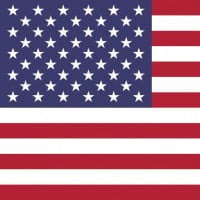 The name "United States" originated from the Thirteen Colonies' unification to form a single federal entity. Originally, these colonies were part of British America and the name "United States of America" was first used in the Declaration of Independence, adopted on July 4, 1776. The name signifies the union of individual states operating under a shared federal government.
The name "United States" originated from the Thirteen Colonies' unification to form a single federal entity. Originally, these colonies were part of British America and the name "United States of America" was first used in the Declaration of Independence, adopted on July 4, 1776. The name signifies the union of individual states operating under a shared federal government. It sounds kind of dumb when I think about it. It's not really a country name, more of just what we are really. Any country could name themselves the United something.
United States aren't really united. Always arguing about politics, and may I remind you that they had a civil war once?
Boring name, just call it America, but the problem with that. There's more then one America
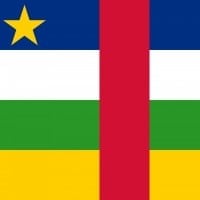 The country is named for its geographical location in Central Africa. It was established as an autonomous territory within the French colonial empire in 1958 and became fully independent in 1960. The name describes its central location on the continent.
The country is named for its geographical location in Central Africa. It was established as an autonomous territory within the French colonial empire in 1958 and became fully independent in 1960. The name describes its central location on the continent. One of the top 3 worst names for a country right now. The Central African Republic? The country nobody cares about in the middle of Africa. A weak, poor country which is mostly in agriculture. It has a lot of refuge-seekers. Its name is SO unoriginal, just as bad as the USA.
It's not even a name. That's just its location on the map followed by a description of its government form. This is like naming a dude "Father of Bob."
Is in Africa. Also, not enough water, or food.
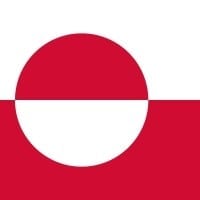 Greenland was named by Norse settlers led by Erik the Red. According to legend, Erik named it "Greenland" to attract settlers, despite much of the island being covered in ice. In the native Kalaallisut language, it is known as "Kalaallit Nunaat," which means "Land of the Kalaallit (Greenlanders)."
Greenland was named by Norse settlers led by Erik the Red. According to legend, Erik named it "Greenland" to attract settlers, despite much of the island being covered in ice. In the native Kalaallisut language, it is known as "Kalaallit Nunaat," which means "Land of the Kalaallit (Greenlanders)." Guys, calm down. It's called Greenland because the Vikings that lived here didn't want anyone to take over their country, Iceland, so they named this Greenland so others would move here and they could stay in a good place.
Named after the two things it has quite little of.
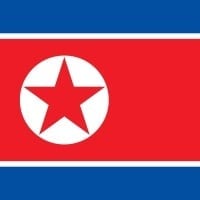 Officially known as the Democratic People's Republic of Korea (DPRK), the name signifies its location in the northern part of the Korean Peninsula. The term "Korea" is an anglicization of "Goryeo," a Korean kingdom that existed from 918 to 1392.
Officially known as the Democratic People's Republic of Korea (DPRK), the name signifies its location in the northern part of the Korean Peninsula. The term "Korea" is an anglicization of "Goryeo," a Korean kingdom that existed from 918 to 1392. In North Korea, democratic = stupid, peoples = no human rights, republic = monarchy.
One day it will unified and just be Korea.
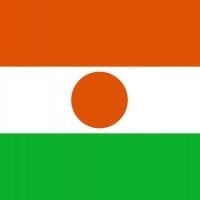 The name "Niger" comes from the Niger River, which is one of the primary geographical features of the country. The river's name is thought to derive from native terms such as the Tuareg phrase "n'eghirren," meaning "flowing water."
The name "Niger" comes from the Niger River, which is one of the primary geographical features of the country. The river's name is thought to derive from native terms such as the Tuareg phrase "n'eghirren," meaning "flowing water." You'd have to be a special kind of challenged to unironically believe that this country's name rhymes with any of the Winnie the Pooh characters.
Ok, my friends and I do think this is kind of a terrible name for a country because of how it's one letter away from being the bad word, but please don't hate on African Americans. They're people.
One letter off from being that no-no word. Doesn't help that it's in Africa.
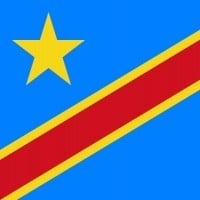 Named after the Congo River, the second-longest river in Africa. The river's name is derived from the Kingdom of Kongo, a pre-colonial African state. The term "Democratic Republic" was added after the country gained independence from Belgium in 1960 to distinguish it from its neighbor, the Republic of the Congo.
Named after the Congo River, the second-longest river in Africa. The river's name is derived from the Kingdom of Kongo, a pre-colonial African state. The term "Democratic Republic" was added after the country gained independence from Belgium in 1960 to distinguish it from its neighbor, the Republic of the Congo. No offense to these countries, but their names are way too long.
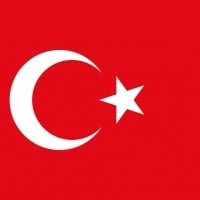 The name "Turkey" is derived from the Medieval Latin "Turchia," used to refer to the region following the Seljuk Turks' invasion in the 11th century. In Turkish, the country is called "Türkiye," which means "Land of the Turks."
The name "Turkey" is derived from the Medieval Latin "Turchia," used to refer to the region following the Seljuk Turks' invasion in the 11th century. In Turkish, the country is called "Türkiye," which means "Land of the Turks." Bring the holy Turkey! Let us eat that, and it must be hella awesome to munch on that animal in that hella country. Dang... Snickers, anyone?!
I don't understand the other entries on this list, but Turkey just makes me laugh.
It is a country with the name of a landfowl commonly eaten as the main course at a feast on an American holiday, but no, we won't eat it.
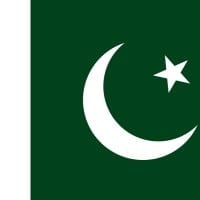 The name "Pakistan" was coined as an acronym by Choudhry Rahmat Ali in 1933, combining the initials of the regions it initially aimed to represent - Punjab, Afghania (North-West Frontier Province), Kashmir, Sindh, and Baluchistan. The suffix "-stan" is a Persian term that means "place of" or "land."
The name "Pakistan" was coined as an acronym by Choudhry Rahmat Ali in 1933, combining the initials of the regions it initially aimed to represent - Punjab, Afghania (North-West Frontier Province), Kashmir, Sindh, and Baluchistan. The suffix "-stan" is a Persian term that means "place of" or "land." Well, it's a dumb country. The name sounds kind of spat-out and Grinch-like to me.
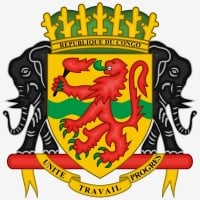 Like the Democratic Republic of the Congo, this country is named after the Congo River. The term "Republic" is used to distinguish it from its larger neighbor to the southeast. The Congo River's name originates from the Kingdom of Kongo, a pre-colonial African state.
Like the Democratic Republic of the Congo, this country is named after the Congo River. The term "Republic" is used to distinguish it from its larger neighbor to the southeast. The Congo River's name originates from the Kingdom of Kongo, a pre-colonial African state.
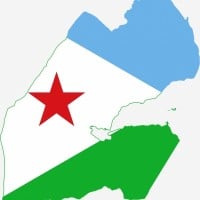 The country's name is derived from "Djabouti," which is the name of the country's capital and largest city. The origin of the name "Djibouti" is disputed, but one theory suggests it comes from the Afar word "gabouti," meaning "plate" or "bowl," referring to the geographical features of the region.
The country's name is derived from "Djabouti," which is the name of the country's capital and largest city. The origin of the name "Djibouti" is disputed, but one theory suggests it comes from the Afar word "gabouti," meaning "plate" or "bowl," referring to the geographical features of the region.
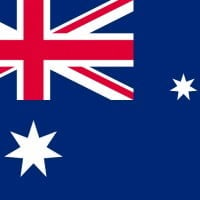 The name "Australia" is derived from the Latin "Terra Australis," meaning "Southern Land." The term was historically used to refer to an imaginary southern continent before Australia was discovered and named.
The name "Australia" is derived from the Latin "Terra Australis," meaning "Southern Land." The term was historically used to refer to an imaginary southern continent before Australia was discovered and named.
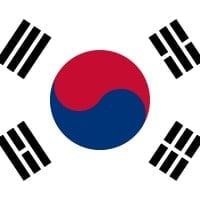 Officially known as the Republic of Korea (ROK), the name signifies its location in the southern part of the Korean Peninsula. Like North Korea, the term "Korea" is an anglicization of "Goryeo," a historical Korean kingdom.
Officially known as the Republic of Korea (ROK), the name signifies its location in the southern part of the Korean Peninsula. Like North Korea, the term "Korea" is an anglicization of "Goryeo," a historical Korean kingdom.
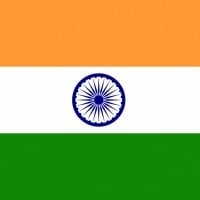 The name "India" is derived from the River Indus, which flows mainly through modern-day Pakistan. The Sanskrit name for the river is "Sindhu," but when the Persians invaded the region, they referred to it as "Hindu," which was later adapted by the Greeks to "Indos" and eventually anglicized to "India."
The name "India" is derived from the River Indus, which flows mainly through modern-day Pakistan. The Sanskrit name for the river is "Sindhu," but when the Persians invaded the region, they referred to it as "Hindu," which was later adapted by the Greeks to "Indos" and eventually anglicized to "India." Not so sure about the name "India"... It just sounds strange.
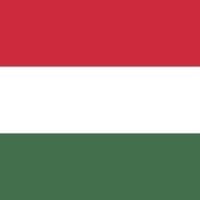 The name "Hungary" derives from Medieval Latin "Hungaria," which itself likely originated from the Medieval Greek "Oungroi." The name is believed to have been used to describe the people of the region, who are known as Magyars in their own language.
The name "Hungary" derives from Medieval Latin "Hungaria," which itself likely originated from the Medieval Greek "Oungroi." The name is believed to have been used to describe the people of the region, who are known as Magyars in their own language. Hungary's name is a disgrace to Hungarians as the name Hungary relates to the Huns, who weren't that nice, and so Europeans call the Hungarians after that even though there's no relation. It's just racism. The name Hungary could be easily changed to be similar to the Hungarian name of Hungary, Magyarország.
Mean people, apparently. Get something to eat. No longer hungry. You are welcome.
If you are Hungary, get a Turkey and boil it in Greece.
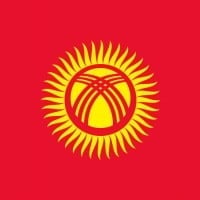 The name "Kyrgyzstan" is derived from the Turkic word "Kyrgyz," referring to the native people, and the Persian suffix "-stan," meaning "land" or "place of." The origin of the term "Kyrgyz" is disputed but may relate to Turkic words for "forty" and "tribes," signifying the legendary unification of forty tribes.
The name "Kyrgyzstan" is derived from the Turkic word "Kyrgyz," referring to the native people, and the Persian suffix "-stan," meaning "land" or "place of." The origin of the term "Kyrgyz" is disputed but may relate to Turkic words for "forty" and "tribes," signifying the legendary unification of forty tribes. There are literally only 2 vowels here, and no way to pronounce this without saying something weird.
It's okay to get some vowels in there, Kyrgyzstan. Just ask the UAE.
Someone must have mashed their keyboard coming up with a name.
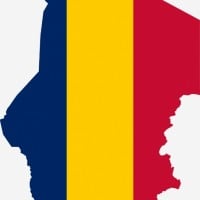 The country is named after Lake Chad, a significant geographical feature in the region. The lake's name is believed to be derived from the local Kanuri word "Tsade," meaning "lake."
The country is named after Lake Chad, a significant geographical feature in the region. The lake's name is believed to be derived from the local Kanuri word "Tsade," meaning "lake." Chad is a common American name, so don't mix this up with your friend.
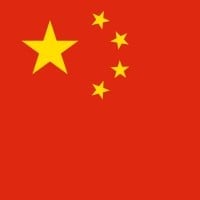 The name "China" is believed to be derived from the Qin Dynasty, pronounced as "Chin," which unified the Warring States of China in 221 BCE. In Mandarin, the country is known as "Zhōngguó," which translates to "Middle Kingdom" or "Central State."
The name "China" is believed to be derived from the Qin Dynasty, pronounced as "Chin," which unified the Warring States of China in 221 BCE. In Mandarin, the country is known as "Zhōngguó," which translates to "Middle Kingdom" or "Central State." Ok, I see why people might not like this name, but nothing's wrong with this. And what's wrong with Mexico?
Why doesn't China have bulls? Because they don't want a bull in a china shop.
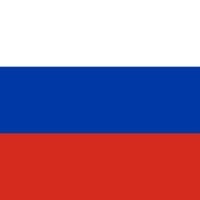 The name "Russia" comes from Rus', a medieval state that was centered around the modern-day areas of Ukraine, Belarus, and western Russia. "Rus'" is believed to have been named after the Varangian Norsemen, known as "Rus," who ruled the area in the 9th century.
The name "Russia" comes from Rus', a medieval state that was centered around the modern-day areas of Ukraine, Belarus, and western Russia. "Rus'" is believed to have been named after the Varangian Norsemen, known as "Rus," who ruled the area in the 9th century. European Russia is completely different from Asian Russia (Siberia, and Muslim and East Asian).
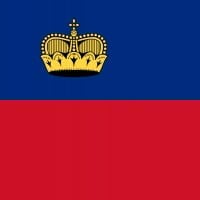 Named after the Liechtenstein dynasty, which purchased the territory in the early 18th century. The name "Liechtenstein" is German for "bright stone," and the country was named after the family who became its ruling princes.
Named after the Liechtenstein dynasty, which purchased the territory in the early 18th century. The name "Liechtenstein" is German for "bright stone," and the country was named after the family who became its ruling princes.
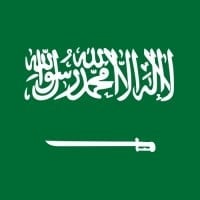 The country is named after the ruling Al Saud family, who unified the territory in the early 20th century. "Arabia" refers to the Arabian Peninsula on which the country is located. The term "Saudi" is derived from "Al Saud," signifying that it is the area governed by the Saud family.
The country is named after the ruling Al Saud family, who unified the territory in the early 20th century. "Arabia" refers to the Arabian Peninsula on which the country is located. The term "Saudi" is derived from "Al Saud," signifying that it is the area governed by the Saud family. Good tourism but built by slaves and forcefully converted them to Islam.
Everyone who lives in the country gets their nationality named after the ruling dynasty. So cucked, xD.
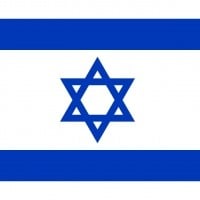 The name "Israel" originates from the Hebrew Bible, where Jacob, the grandson of Abraham, was given the name "Israel" after wrestling with a divine being. In Hebrew, "Israel" can be interpreted as "struggles with God." The modern state of Israel was established in 1948 in parts of what was then British Mandate Palestine, and the name was chosen to revive the ancient Kingdom of Israel.
The name "Israel" originates from the Hebrew Bible, where Jacob, the grandson of Abraham, was given the name "Israel" after wrestling with a divine being. In Hebrew, "Israel" can be interpreted as "struggles with God." The modern state of Israel was established in 1948 in parts of what was then British Mandate Palestine, and the name was chosen to revive the ancient Kingdom of Israel.
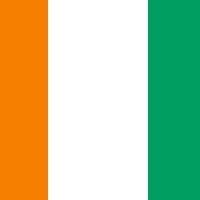 Known in English as Ivory Coast, the country's French name "Côte d'Ivoire" translates to "Coast of Ivory." It was named by French colonizers in the 19th century, reflecting the significant ivory trade that once took place in the region. The country prefers the French name to be used in international contexts.
Known in English as Ivory Coast, the country's French name "Côte d'Ivoire" translates to "Coast of Ivory." It was named by French colonizers in the 19th century, reflecting the significant ivory trade that once took place in the region. The country prefers the French name to be used in international contexts. Meaning Coast of Ivory in French, this is absolutely the worst name for a country right now. Couldn't the independentists rename the French colonized country something different?
Any name with special characters is a terrible name for a country.
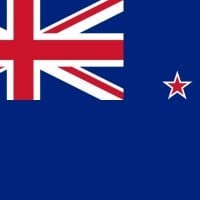 The country was named "Nieuw Zeeland" by Dutch explorer Abel Tasman in the 17th century, after the Dutch province of Zeeland. The name was later anglicized to "New Zealand." The indigenous Māori name for the country is "Aotearoa," which is commonly translated as "the land of the long white cloud."
The country was named "Nieuw Zeeland" by Dutch explorer Abel Tasman in the 17th century, after the Dutch province of Zeeland. The name was later anglicized to "New Zealand." The indigenous Māori name for the country is "Aotearoa," which is commonly translated as "the land of the long white cloud."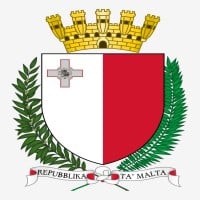 The name "Malta" is believed to be derived from the Phoenician word "Malat," which means "refuge" or "haven," possibly referring to the island's numerous natural harbors.
The name "Malta" is believed to be derived from the Phoenician word "Malat," which means "refuge" or "haven," possibly referring to the island's numerous natural harbors.
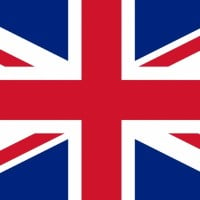 The full name is the United Kingdom of Great Britain and Northern Ireland. "Great Britain" refers to the island containing England, Scotland, and Wales. The "United Kingdom" signifies the political union of these three nations, along with Northern Ireland.
The full name is the United Kingdom of Great Britain and Northern Ireland. "Great Britain" refers to the island containing England, Scotland, and Wales. The "United Kingdom" signifies the political union of these three nations, along with Northern Ireland. What's wrong with the United Kingdom?